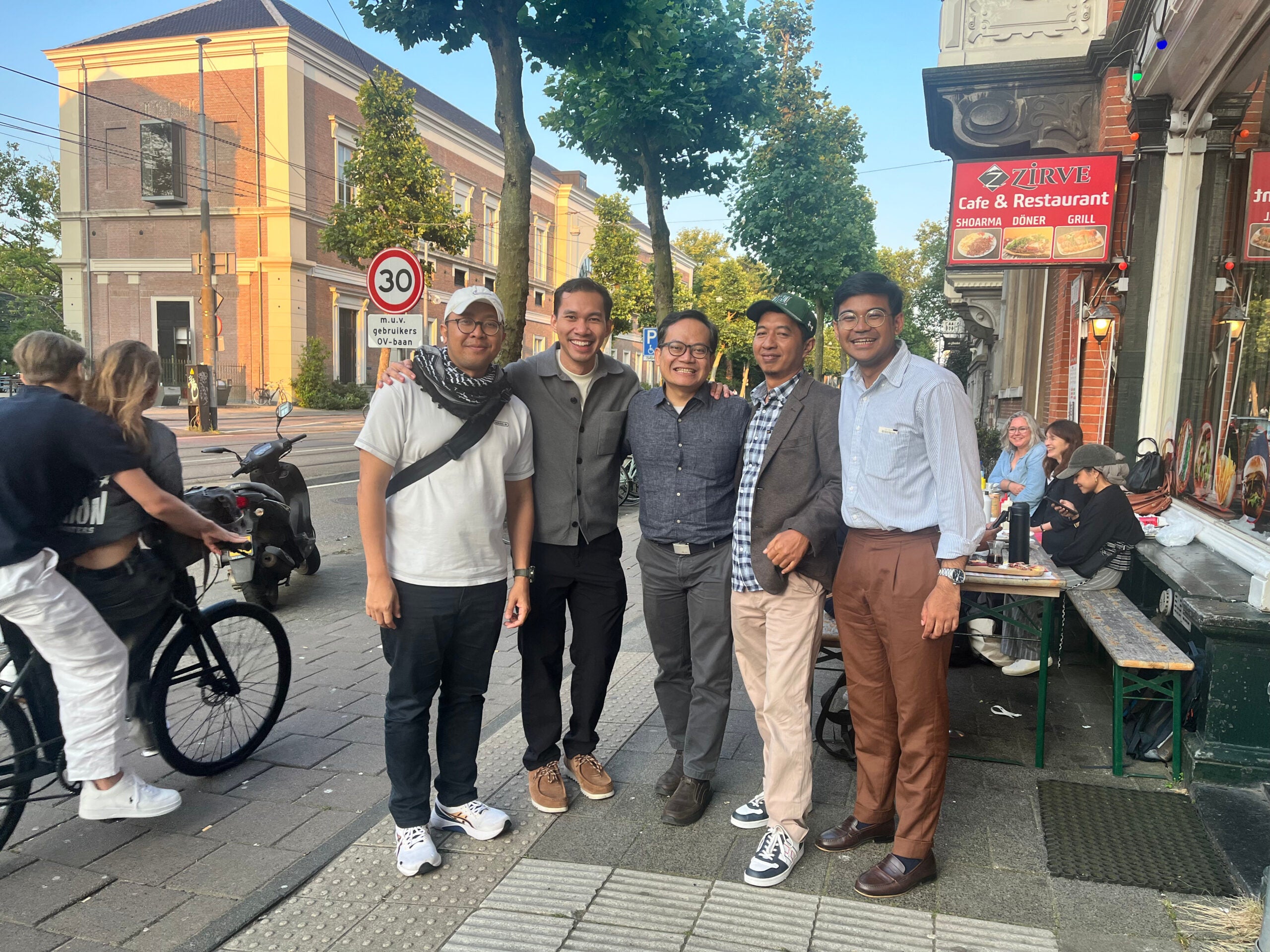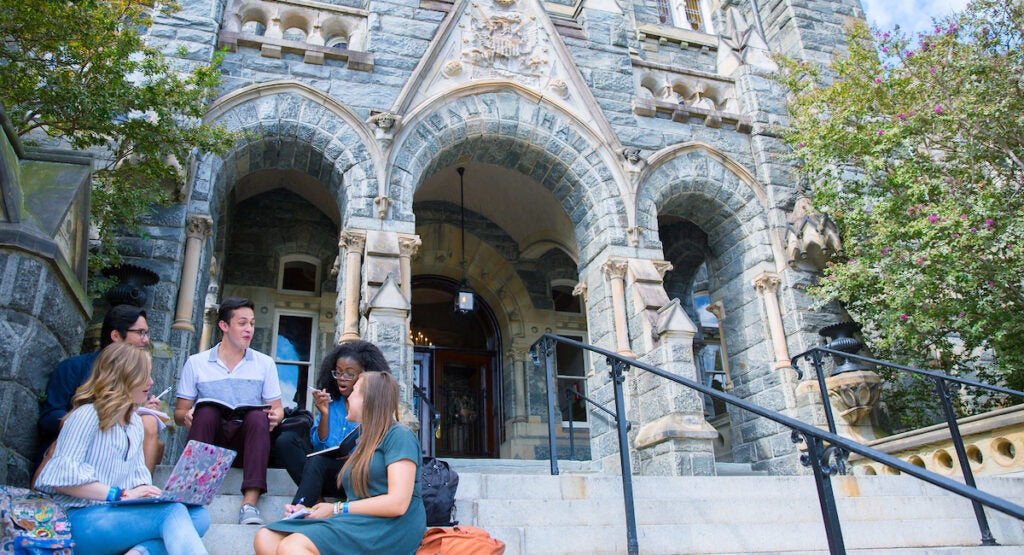What One Doctoral Student Hopes to Uncover About the Influence of a Major 17th-Century Muslim Thinker in Southeast Asia
This is part three of four in the Graduate School’s summer series, which chronicles what Grad Hoyas are up to near and far this summer. Follow along on grad.georgetown.edu and our social media channels.
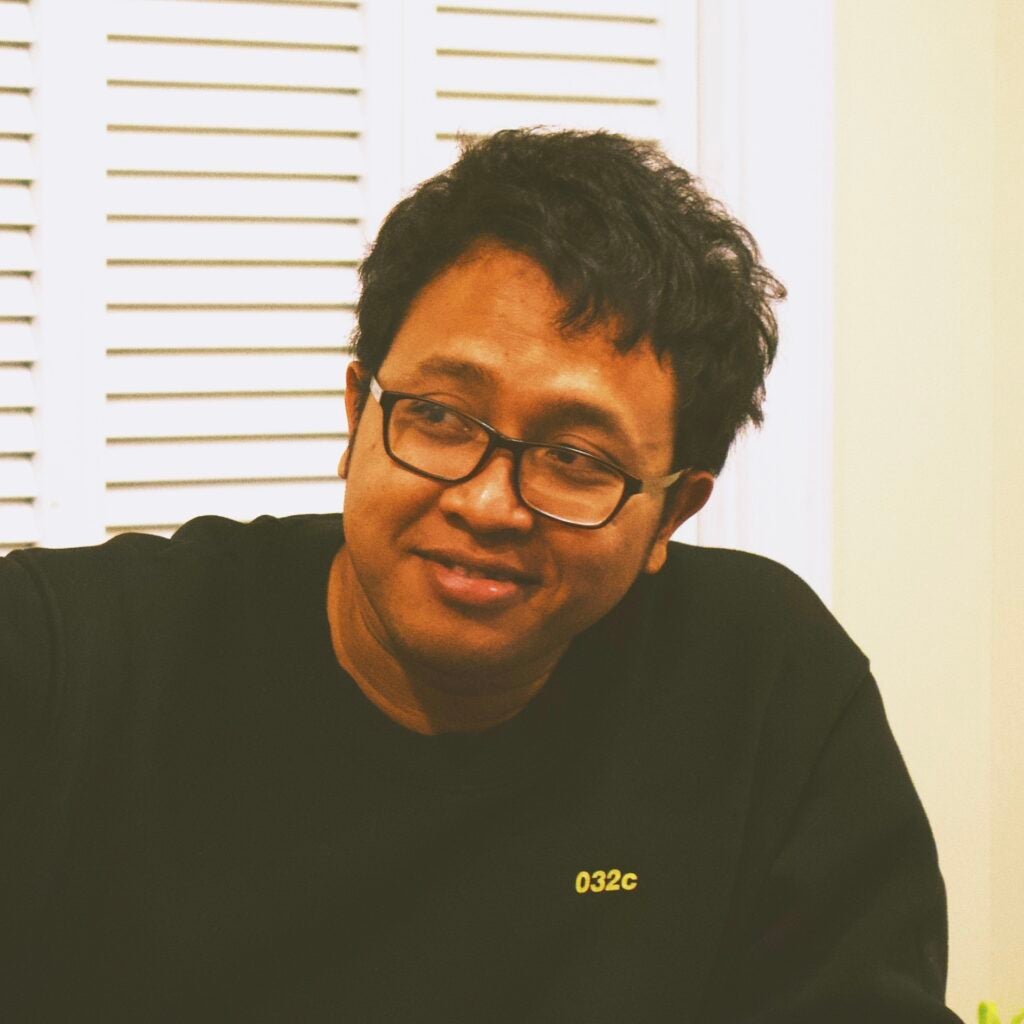
Halim Khoiri
From the time he entered high school, Halim Khoiri (G’28) knew he wanted to dedicate his life to studying Islam.
Khoiri had grown up surrounded by traditional Islamic communities in East Java, Indonesia, and he was eager to learn more about the role Islam had on people from Southeast Asia, also known as Nusantara, in the pre-Modern time.
“The marriage of Islam and the culture of Nusantara has yielded a rich and distinct Islamic civilization,” says Khoiri.
Khoiri learned Arabic early on, the sacred language of Islam, to deepen his understanding of the religion. He’ll enter his second year of the Ph.D. in Arabic & Islamic Studies this fall at Georgetown.
This summer, Khoiri was invited to present a paper on a major 17th-century Nusantara thinker – who was not only a hero to Indonesia resisting Dutch colonization but also a prominent Muslim thinker who voyaged to India and Arabia for his scholarly pursuits, and later Sri Lanka and South Africa, broadening his intellectual influence – at a European conference in Amsterdam, after which he conducted more research at an international library in The Netherlands.
Explore Khoiri’s summer experience in Europe, his favorite class as a doctoral student and the advice he’d give to those interested in the field of Arabic and Islamic studies as a career.
Academic Interests & Summer Travels
Khoiri’s academic interests in Arabic and Islamic studies are far-reaching. From his undergraduate days at Paramadina University in Jakarta to his recent master’s work at George Washington University, Khoiri is invested in learning as much as he can about Sufism and Islamic philosophy.
“I have always been impressed by the beauty of the Quran, both in its formal language in Arabic and its layers of meaning. I am also in awe of its power and influence in creating Islamic civilizations from East to West, especially in shaping Sufism, the mystical tradition of Islam.”
The Akbarian Sufi school in Southeast Asia is his main academic interest, which he delves into through a major 17th-century thinker who was a national hero in Indonesia and South Africa: Yusuf al-Maqasiri. While al-Maqasiri was originally from Nusantara, he wrote exclusively in Arabic.
“One can see and feel Islam in Nusantara just as they feel it in the Middle East, but the latter has distinctive features,” he says. “One of these features is the development of Akbarian Sufism, that is a school of Sufism or mysticism conveyed in a philosophical language established by the great master, Ibn ʿArabi from Andalus, Spain which was vernacularized in Nusantara through Arabic, Jawi and Malay languages in the pre-Modern time.”
Georgetown’s doctoral program, he says, allows him to delve into this intellectual tradition. After studying the Arabic works of Yusuf al-Maqasiri, Khoiri wants to broaden his research and expertise into Akbarian Sufism in Nusantara within the Jawi and Malay languages from the 15th- to 18th-century.
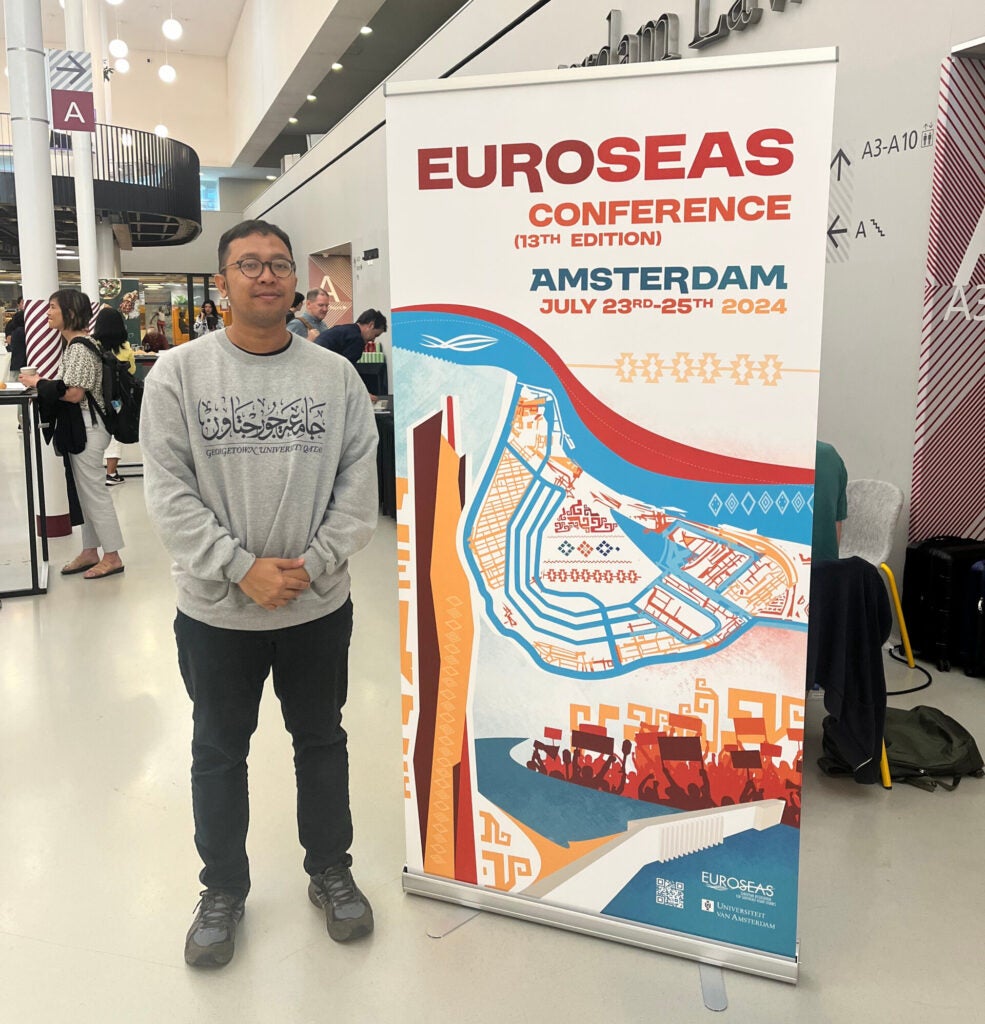
Halim Khoiri at 2024 EuroSEAS Conference in Amsterdam
“Since only a few people work in the field of Akbarian Sufism in Nusantara, everyone knows everyone and what they are doing,” Khoiri notes.
A friend of his, Zacky Umam, who just finished his postdoctoral program in Islamic manuscripts at SOAS London, invited Khoiri to be a panelist and present findings from a research paper he completed in his first year at Georgetown at the 13th annual 2024 European Association for Southeast Asian Studies Congress (EuroSEAS) conference.
Khoiri’s presentation questions the documentation around al-Maqasiri’s travels to Yemen, Syria and Hijaz in search of Akbarian teachers. Challenging long-held beliefs by scholars of the time, Khoiri postulates that the journey took al-Maqasiri through India before heading to Arabia; using as evidence, a unicum manuscript written in al-Maqasiri’s handwriting found within a library in Tehran, Iran. While it is known that Akbarian Sufism was widespread and controversial in 17th-century Nusantara, Khoiri’s findings add the fact that – among others – Akbarian Sufism was not only transmitted to Nusantara through Arabia, but also through Persianate-India as one can see from al-Maqasiri’s record of spiritual guidance he received through a Gujarati scholar, Nur al-Din al-Raniri.
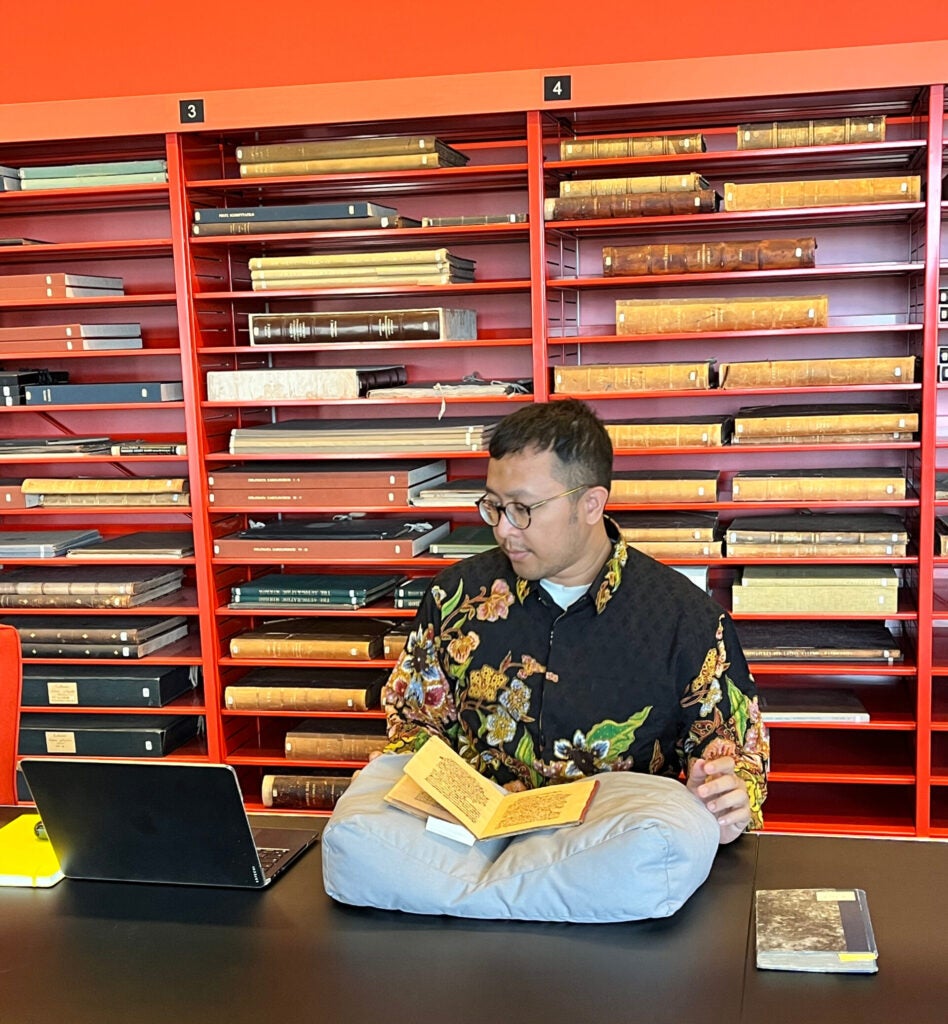
Khoiri at University of Leiden Library reading a manuscript
Following several EuroSEAS conference sessions at the University of Amsterdam, Khoiri traveled to the city of Leiden to conduct research at Leiden University Library where he discovered dozens of 16th-,17th- and 18th-century Akbarian manuscripts from Nusantara. Additionally, he was also able to trace some of al-Maqasiri’s important works and manuscripts back to two of his scholarly masters: Nur al-Din al-Raniri and Ibrahim al-Kurani.
“Pre-modern Indonesian Islam, including its Akbarian intellectual tradition, is a very understudied field,” noted Khoiri. “I hope to present a contribution to this niche by eventually publishing my paper.”
After leaving the Netherlands, Khoiri traveled back home to Jakarta to conduct additional research on Akbarian Sufism at the National Library of Indonesia.
“The manuscripts in both Indonesia and the Netherlands are rare since the circulation of Akbarian Sufism in the region stopped around the end of the eighteenth century,” he noted.
“By accessing al-Maqasiri’s Arabic works preserved in the two libraries, I am hoping to uncover his ideas and to understand how Akbarian Sufism developed from its origin in the 13th-century in Andalus, Spain and Damascus, Syria to the 17th-century in Nusantara.”
Advice to Future Scholars
Reflecting on his first year of the program, Khoiri’s two favorite classes were State of Research in Arabic and Islamic Studies taught by Rodrigo Adem and Islam in South Asia taught by Jonathan Brown.
Both professors, he noted, are extremely supportive and invested in fostering his scholarly interests. In the course with Adem, his final paper analyzing the works that were studied and read by al-Maqasiri during his journey in Nusantara, India and Arabia will likely become the first chapter of his doctoral dissertation.
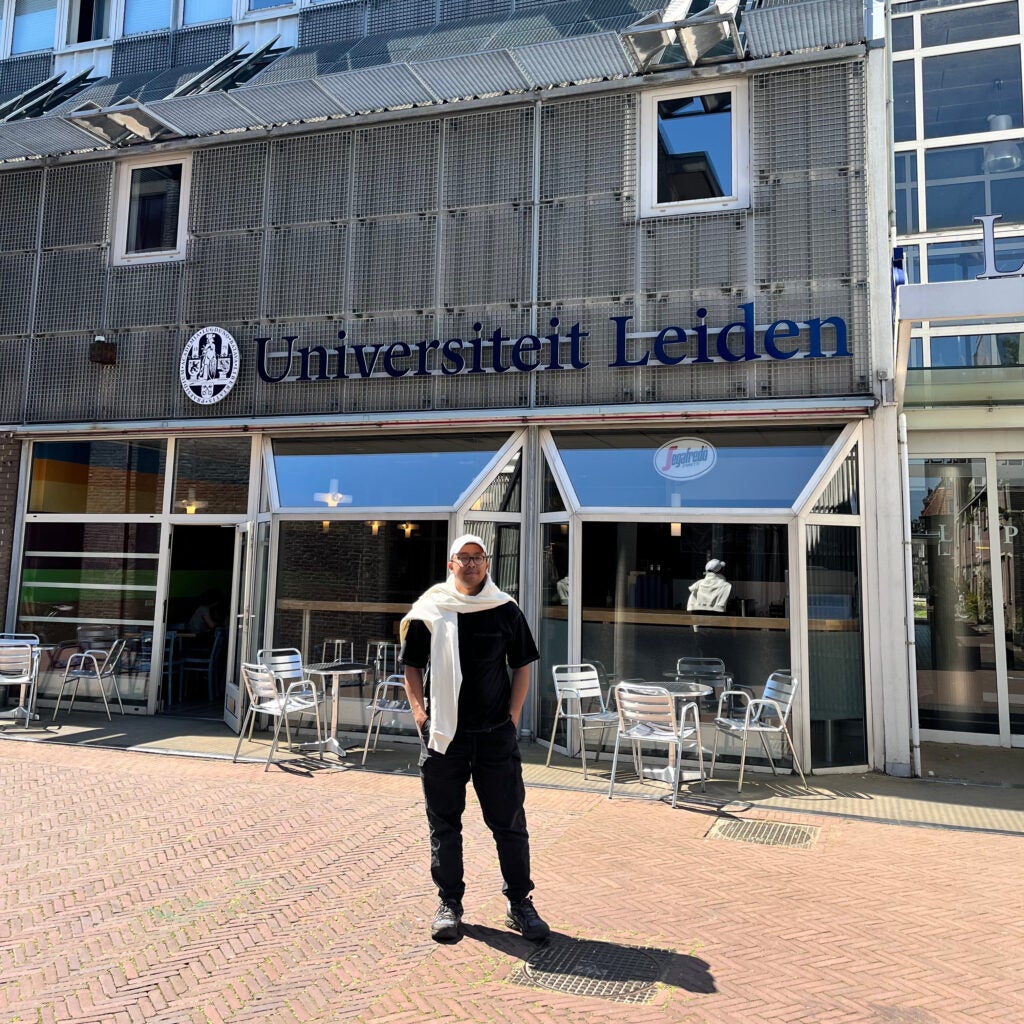
Khoiri stands in front of a University of Leiden building
Despite being a polyglot, speaking Javanese, Indonesian, English and Arabic, Khoiri recommends that anyone interested in Arabic and Islamic studies also learn Persian.
“Master the Persian language – in addition to Arabic – as early as you can. Both languages are crucial in understanding Islamic philosophy and Sufism from the beginning to the present.”
Additionally, he suggests that being open-minded and curious are key to excelling in intellectual studies.
”Be curious at all times. You can learn something even from a peasant in a rice field somewhere in a small village. Wisdom cannot be confined exclusively in the academic world because it has permeated everything that exists.”
Connect with Halim Khoiri on LinkedIn.
